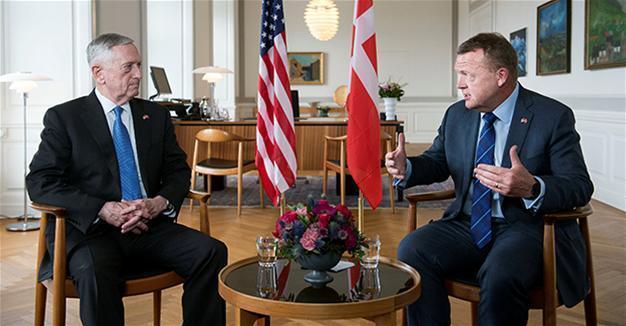US to directly arm Syrian Kurdish YPG, Pentagon confirms
WASHINGTON - Reuters

REUTERS photo
U.S. President Donald Trump has authorized arming the Syrian Kurdish Peoples’ Protection Units (YPG) in Syria "as necessary to ensure a clear victory" in a planned assault to retake the city of Raqqa from Islamic State of Iraq and the Levant (ISIL), the Pentagon said on May 9, in a likely blow to U.S. ties with Turkey.“Yesterday, the president authorized the Department of Defense to equip Kurdish elements of the Syrian Democratic Forces as necessary to ensure a clear victory over ISIS in Raqqa, Syria,” Pentagon spokeswoman Dana White, who is traveling with Defense Secretary Jim Mattis in Lithuania, said in a statement, adding that Washington was keenly aware of the security concerns of coalition partner Turkey.
"We want to reassure the people and government of Turkey that the U.S. is committed to preventing additional security risks and protecting our NATO ally," White said.
"The SDF, partnered with enabling support from U.S. and coalition forces, are the only force on the ground that can successfully seize Raqqa in the near future," she added.
The announcement comes one week before President Recep Tayyip Erdoğan is scheduled to visit Washington and meet Trump.
Ankara considers the Democratic Union Party (PYD) and its armed wing, the YPG, as “terrorist” groups linked to the outlawed Kurdistan Workers’ Party (PKK), and has long pressed Washington to stop its alliance with the group in the fight against ISIL.
Earlier on May 9, Mattis said the United States and Turkey would work together as operations continue to retake Raqqa.
His remarks come weeks after Turkey launched air strikes against YPG, drawing an angry response from Washington.
"Our intent is to work with the Turks, alongside one another to take Raqqa down," Mattis said, speaking at a news conference following an anti-ISIL summit in Copenhagen.
"We are going to sort it out and figure out how we are going to do it, but we are all committed to it."
But the United States does not envision Turkey actually participating in the ground offensive for Raqqa, which ISIL has held for more than two years.
"The tactical activities on the ground -- I don't want to go into details right now," Mattis said.
Mattis met with Başat Öztürk, deputy undersecretary at the Turkish defence ministry, during the anti-ISIL conference.
He also held a phone conversation with Defense Minister Fikri Işık, according to Turkish media reports.
The US-led coalition fighting ISIL in Iraq and Syria discussed the campaign's next steps as the jihadists' "caliphate" around Raqqa is collapsing.
Though officials warn that military action will continue for some time, they are generally upbeat about the progress and quickening momentum of the fight.
"We examined the enemy situation and discussed the next steps to make sure we are all on the same sheet of music. We are going to further accelerate this fight," Mattis said after the summit.
After months of brutal, street-by-street combat, ISIL has now lost control of most of its stronghold of Mosul in Iraq, while the jihadists have become largely isolated in Raqqa.
Several coalition countries are keeping a nervous eye on the region as ISIL-held territory diminishes.
Thousands of foreign fighters remain in Iraq and Syria, and coalition nations -- particularly in Europe -- are bracing for a possible wave of battle-hardened jihadists returning home.
According to a senior US administration official, Interpol has identified 14,000 foreign fighters it knows have travelled to Syria and are still alive.
The largest numbers come from Tunisia, followed by Saudi Arabia. Thousands more have travelled from Europe, including 100 or so from Denmark, said the official, who asked not to be named.
The international law enforcement agency Interpol is now part of the anti-ISIL coalition, becoming the alliance's 68th member.
The campaign against ISIL began in autumn 2014 and has seen the Iraqi security forces -- backed with coalition training and air power -- reverse humiliating losses and recapture several key cities including Ramadi and Fallujah.
Iraq's second city Mosul is now mainly back under Iraqi control, though ISIL continues to hold the Old City on the west side, where its fighters are preparing for a bloody last stand.
In Syria, coalition-backed Kurdish and Arab forces have been gradually recapturing towns and villages, with the focus now on isolating Raqqa ahead of a major offensive to seize back the city after more than two years of jihadi rule.
US President Donald Trump came to power on a pledge to destroy ISIL.
Though much of the groundwork had already been laid and the coalition had conducted thousands of strikes, US military leaders credit Trump with delegating them greater authority, enabling a quickening pace of operations.
Critics say the additional strikes have accelerated the rate of civilian deaths.
















